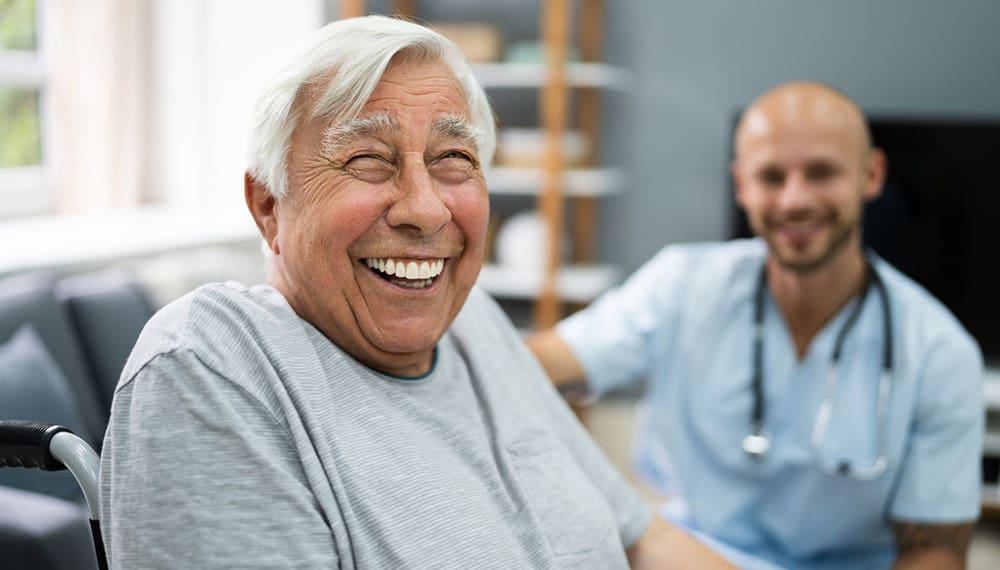Caring for an aging parent or loved one can be deeply fulfilling, but it also comes with difficult decisions. One of the hardest is knowing when it’s time to bring in outside help. Often, seniors may not express their struggles or may resist assistance altogether. That’s why it’s important for family members to recognize the early signs that their loved one may need in-home care. Taking action early can help prevent accidents, preserve dignity, and improve overall quality of life.
1. Decline in Personal Hygiene and Grooming
One of the earliest and most noticeable signs that a senior may need help is a decline in their personal hygiene. You may notice they’re not bathing as regularly, wearing the same clothes for several days, or neglecting grooming habits like brushing their hair or shaving. These changes can be subtle at first but often indicate deeper problems such as limited mobility, memory challenges, or even depression.
Many seniors find these tasks increasingly difficult due to arthritis, fear of falling, or fatigue. Home caregivers in Clifton,VA can step in to assist with bathing, dressing, toileting, and daily hygiene routines in a respectful and supportive way, helping seniors maintain their dignity while staying clean and comfortable.
2. Poor Nutrition or Sudden Weight Loss
Another red flag to watch for is a noticeable change in eating habits. This could mean skipping meals, eating mostly processed snacks, or forgetting to eat altogether. You might find spoiled or expired food in the fridge or a kitchen lacking fresh groceries.
These signs often point to a need for daily help with shopping and meal preparation. Families who have worked with home caregiversoften report that having someone help with planning and cooking balanced meals made a significant difference in their loved one’s health and energy levels. Proper nutrition is critical for maintaining strength, supporting immune function, and preventing other health complications.
3. Missed Medications and Increasing Forgetfulness
It’s not uncommon for seniors to experience occasional forgetfulness, but if memory lapses are becoming more frequent or severe, it could signal a deeper issue. Missing medications, misplacing items, repeating questions, or appearing confused about time and place are all concerning behaviors.
When memory-related challenges begin to interfere with daily routines, in-home care becomes crucial. Professional senior care in Chantilly, VA can assist with medication reminders, schedule management, and creating structure in a senior’s day-to-day life. Those exploring senior care have found that consistent Visiting Angels can help seniors maintain mental clarity longer and avoid the dangers of unmanaged conditions.
4. Mobility Issues or Frequent Falls
Aging often brings changes in balance and coordination, which can lead to falls—one of the most serious risks for older adults. Signs such as bruises, unexplained injuries, or reluctance to move around the house may indicate a fear of falling or difficulty with mobility.
In-home caregivers can support safe movement around the house, assist with transferring in and out of chairs or beds, and help make home environments safer. From removing trip hazards to installing grab bars in bathrooms, caregivers play a vital role in preventing accidents and promoting confidence.
5. Social Withdrawal or Mood Changes
Has your loved one stopped participating in their favorite activities? Are they spending more time alone or showing signs of anxiety or irritability? Social isolation is a major health concern for seniors and can lead to depression, cognitive decline, and poor health outcomes.
Regular companionship is one of the most underrated yet powerful aspects of in-home care. Whether it’s chatting over coffee, taking a walk, or playing a game, having someone to engage with can lift a senior’s spirits and provide emotional stability. Caregivers can also help keep seniors connected to their friends, family, and community.
Conclusion
No one wants to admit that a loved one is struggling, but ignoring the signs can lead to preventable accidents and a lower quality of life. Paying attention to subtle changes in hygiene, nutrition, memory, mood, and mobility can help families intervene early with supportive solutions.
In-home care doesn’t have to be a last resort—it can be a proactive way to improve comfort, independence, and emotional well-being. If you’ve noticed any of these signs in your elder loved one, consider speaking with a professional in-home care agency to explore options tailored to their needs. Your loved one deserves the best care possible—and it can often happen right in the comfort of their own home.

